Here’s why I love New York: I was walking down a street in Astoria, feeling potbellied after visiting a Chilean bakery and a Jordanian bakery, when I noticed a cute little place called Harissa Café. I took a peek at the menu, thinking I’d found a Moroccan restaurant, and noticed that several of the dishes were listed as “North African,” not Moroccan.
That’s usually a hint that somebody is from an underappreciated country, and might be in the food closet. That’s potentially very exciting, if you’re, say, trying to eat food from every underappreciated country in the world.
So I walked in, ordered a can of Diet Coke (yes, I’m one of those irrational people who eats like a starving hog but guzzles NutraSweet like a… dumb, thirsty hog), and started chatting with the owner, a friendly fellow named Halim. It turns out that I’d stumbled into an Algerian restaurant. To make the scene complete, another Algerian restaurateur—the owner of Nomad, an upscale North African restaurant in the East Village—happened to stop by for a chat.
At that moment, my life was perfect: I was having a conversation with both of New York’s Algerian restaurant owners, while drinking a delicious, cancerous can of low-calorie soda. Bliss!
And for even more bliss, I came back for brunch the next day, accompanied by my three favorite women. We started with an order of boureks ($5.95), consisting three delicious cigar-shaped rolls of fried phyllo dough, stuffed with ground beef, parsley, cheese, and flecks of egg. The Algerian boureks were crispy and heartily spiced, and only a distant cousin of the soft, chewy versions served in Albanian, Serbian, Montenegrin, or Kosovar establishments.
One of Halim’s other Algerian specialties was an appetizer called brik ($3.95), a large, flat triangle of phyllo dough, stuffed with tuna, capers, parmesan cheese, parsley, and a slightly runny egg. Even more interesting was the gigantic frites/merguez omelette ($8.95), loaded with french fries and topped with harissa-spiked merguez sausage. (“Only in Algeria,” Halim grinned, when we inquired about the dish’s origins.)
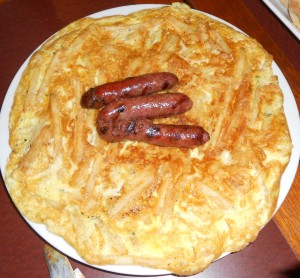
NutraSweet might cause birth defects in full-grown adults, but merguez and french fries and eggs just cause blissed-out fatness
By the way, I drank nothing but water and deliciously fresh Moroccan mint tea with our brunch. Nope, no Diet Coke for breakfast. I’m over 30, but I’m convinced that it’s not too late to get birth defects from drinking too much NutraSweet. So I try to keep my consumption under a gallon per day… but if you see me waddling down the street with flippers or a curly pink tail someday, you’ll know why.
Anyway, we loved the bourek and brik and omelette, but we were thoroughly blown away by the zaaluk salad ($3.95), an amazing puree of roasted eggplant and fresh herbs, served with warm pita bread. To finish our meal, we munched a honey-drizzled plate of strawberries and beghrir (“North African pancakes,” $3.95), which resembled gigantic, soft, thick, puffy crepes; they were light and pleasantly spongy, and put even the best American-style pancakes to shame.
A few weeks later, we returned with a charismatic Kenyan-American chef, journalist and blogger named Adhis, who happens to be one of the world’s foremost experts on African food. Chef Adhis’s amazing blog features plenty of content related to African culture, cuisine, and food security, but she’s particularly interested in exploring the question of why African food is so horrifically underappreciated in the United States.
And for what it’s worth, I wholeheartedly agree that African food is miserably underappreciated, even in NYC. We live in the world’s most diverse city, but most of us have barely heard of African food from anyplace besides Morocco and Ethiopia. And that’s sad, because we’re all missing out on great stuff from all over the continent; the United States would be a happier place if more restaurants offered Nigerian moi-moi or Malawian nsima or that amazing Malagasy cassava leaf dish.
But sadly, too few African restaurateurs seem willing to aggressively market their cuisine to non-African customers. Personally, I’d love to see more African restaurateurs proudly proclaim their national origins on their awnings; I’m always a little bit sad when I see a restaurant call itself “African,” as if the entire continent features only one type of food.
Then again, I can hardly blame Halim for letting customers and food bloggers assume that his wonderful Algerian cuisine is actually Moroccan. Why scare American customers by putting an “obscure” country name on the awning?
Anyway, back to that amazing Algerian food. On our second visit, we couldn’t resist starting with another round of zaaluk salad and boureks, all of which were every bit as good as the first time. For our entrees, we enjoyed an impressive vegetarian couscous ($9.95), highlighted by some delicious chunks of pressure-cooked squash, turnip, and carrots. We also inhaled an outstanding tajine (stewed leg of lamb, $11.95), accompanied by spiced peas and stewed artichokes. And thanks to a recommendation by our wonderful (non-Algerian) waitress, we chomped our way through an incredible plate of lemon-roasted chicken ($10.95), served in a delicious sauce with tons of lemon and herbs de Provence.
It was among the best—and most reasonably priced—African meals you’ll find in NYC. And Halim, who is one of the most genuinely warm restaurateurs I’ve met in New York, probably won’t even be all that offended if you accidentally call his food Moroccan instead of Algerian.
To learn more about African cuisine, visit Adhis’ outstanding blog, www.chefafrik.com, or follow her on twitter. And for a really boring time, follow United Nations of Food on twitter.
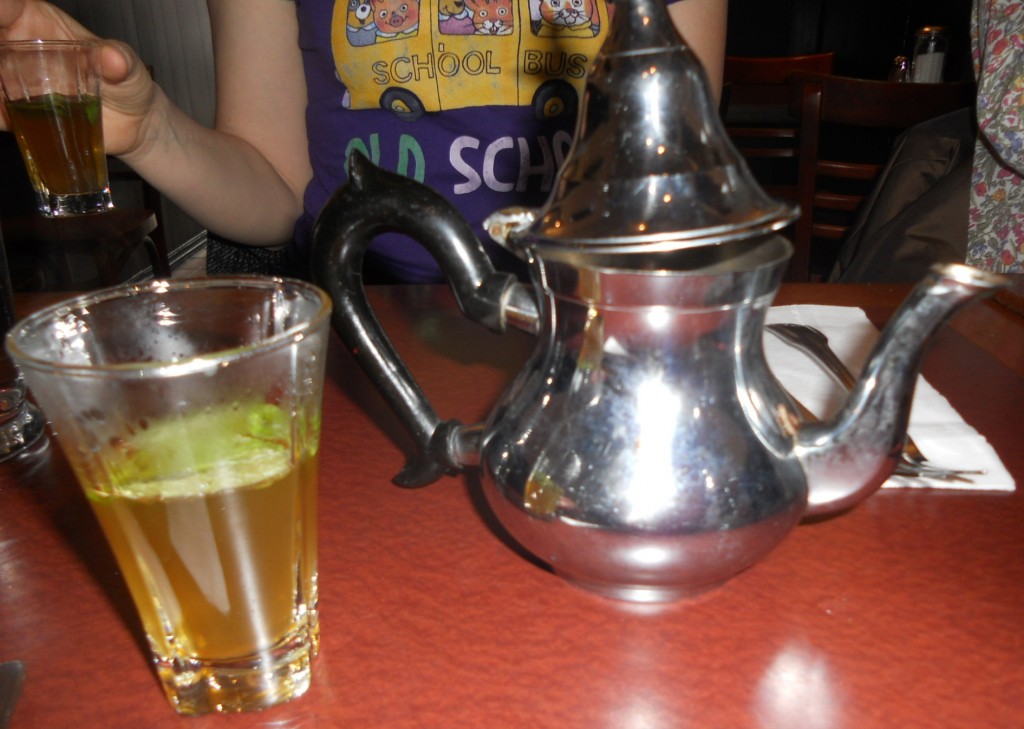
if you see me waddling down the street with flippers or a curly pink tail... it's not because of the tea
Harissa Café
3405 30th Ave., Astoria, Queens
Subway: 30th Ave. (N, Q trains)


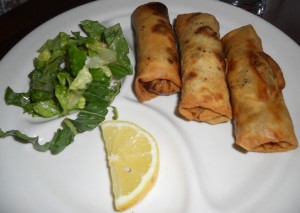
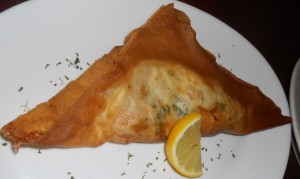
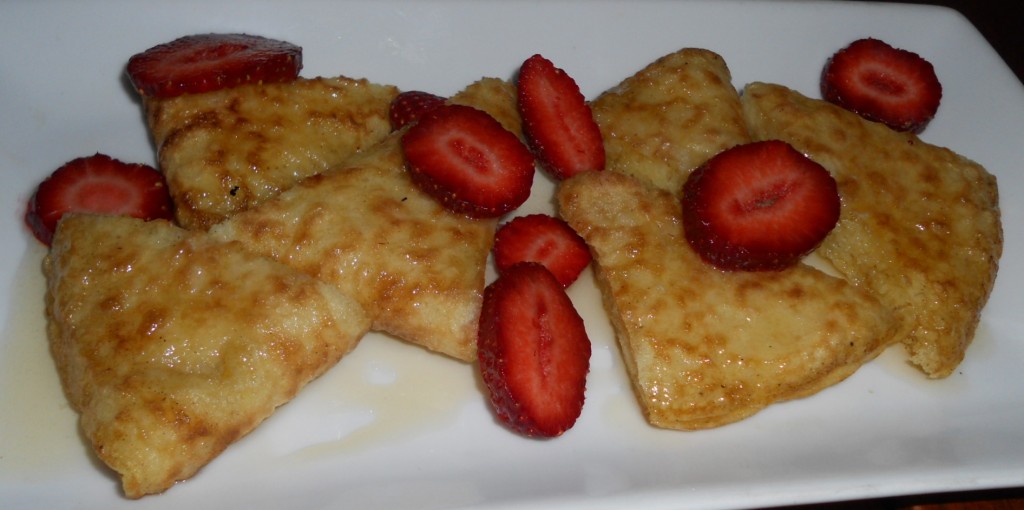
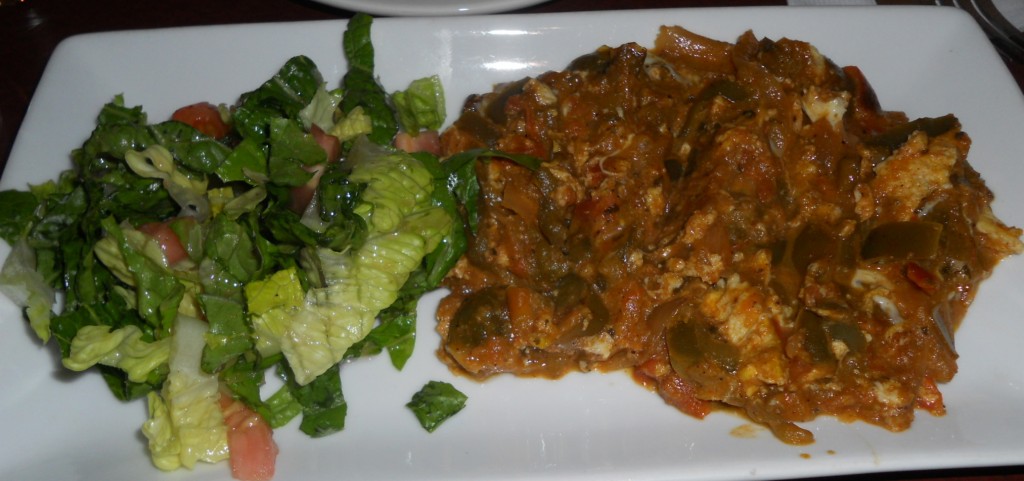







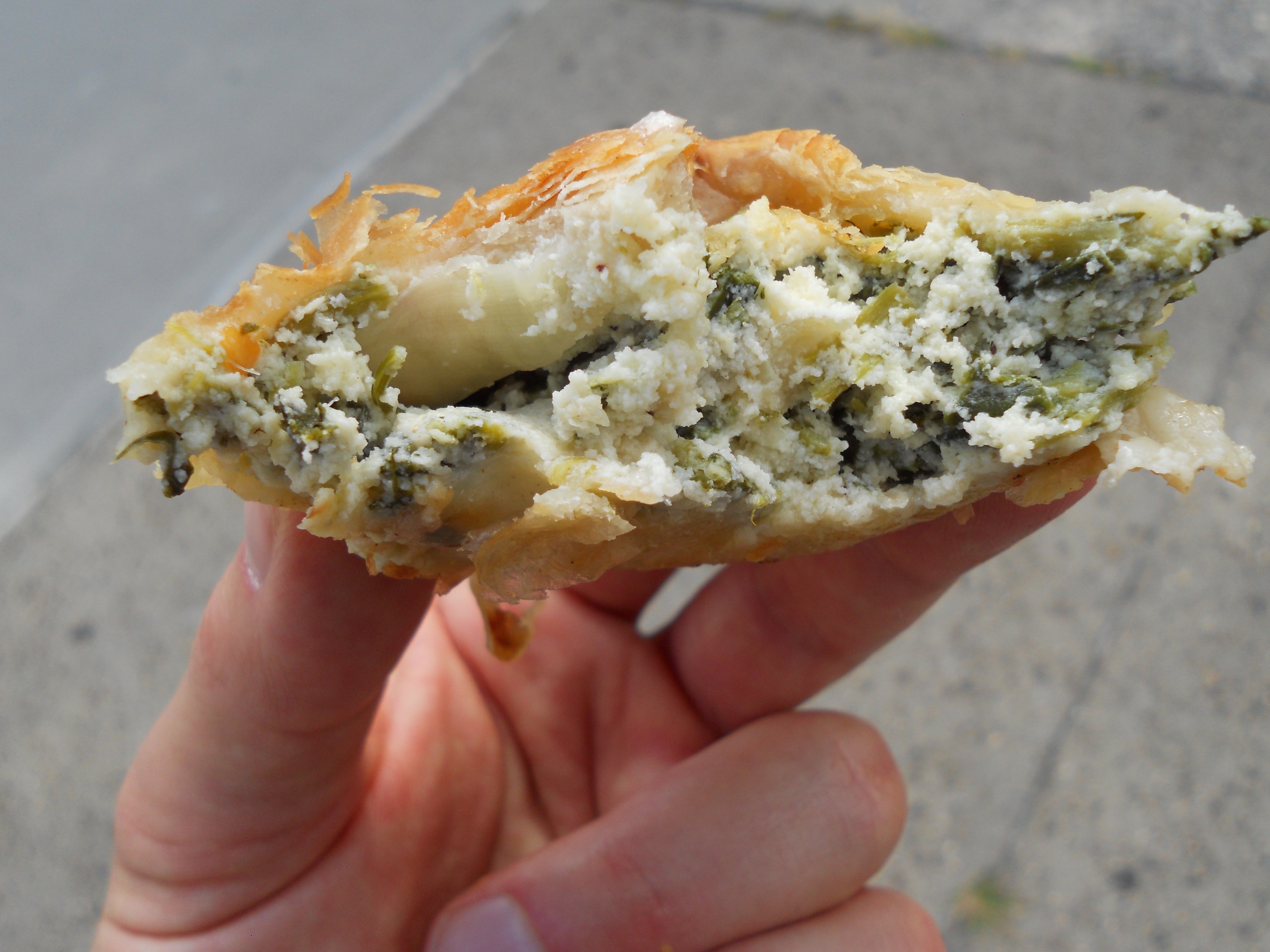
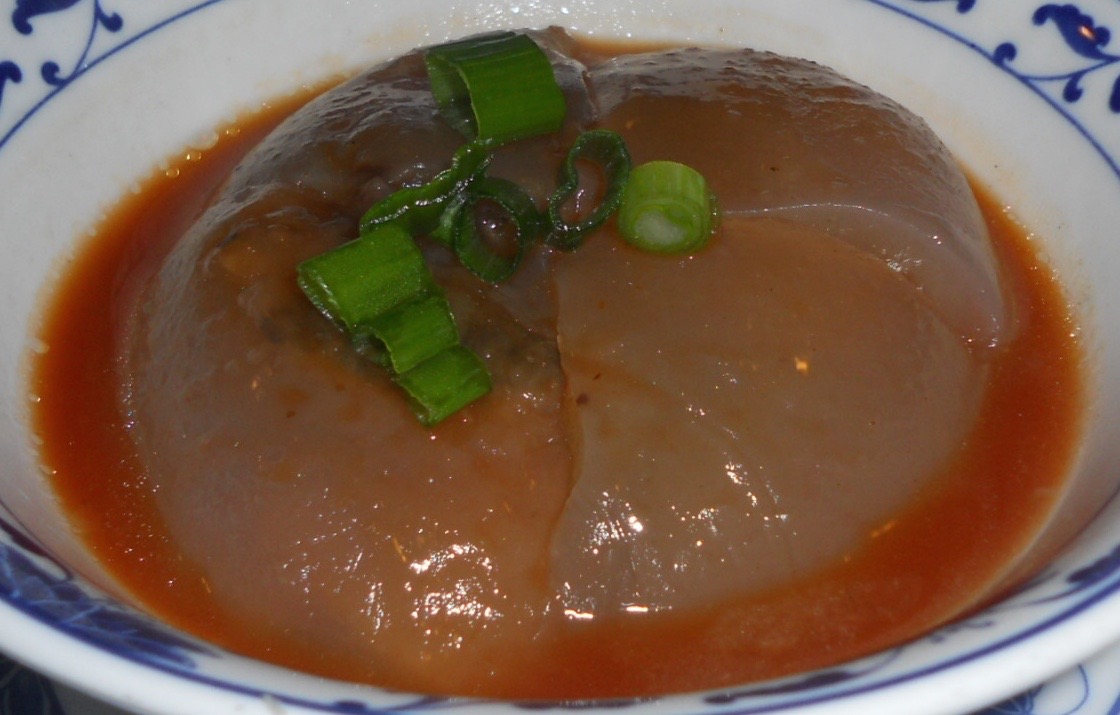
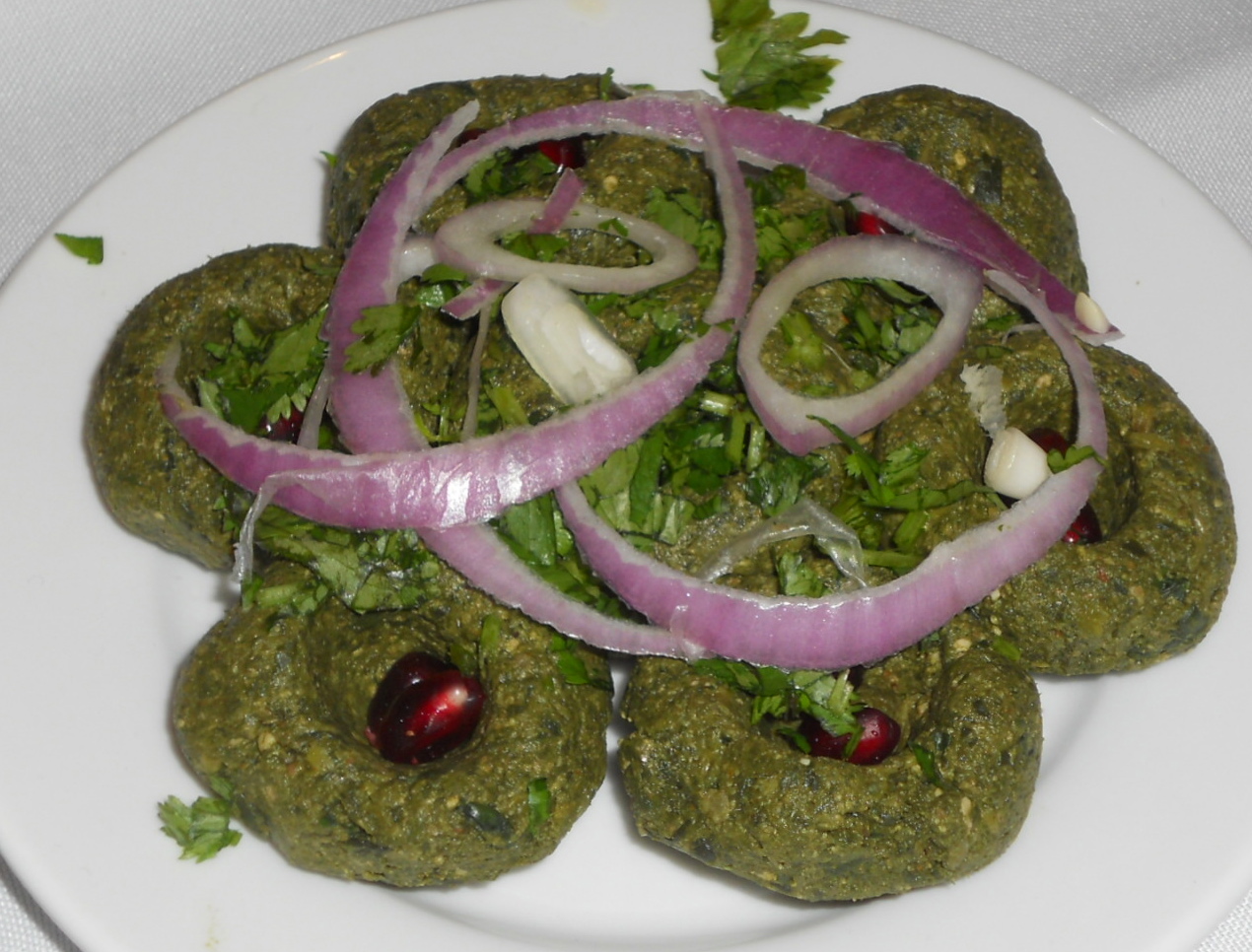
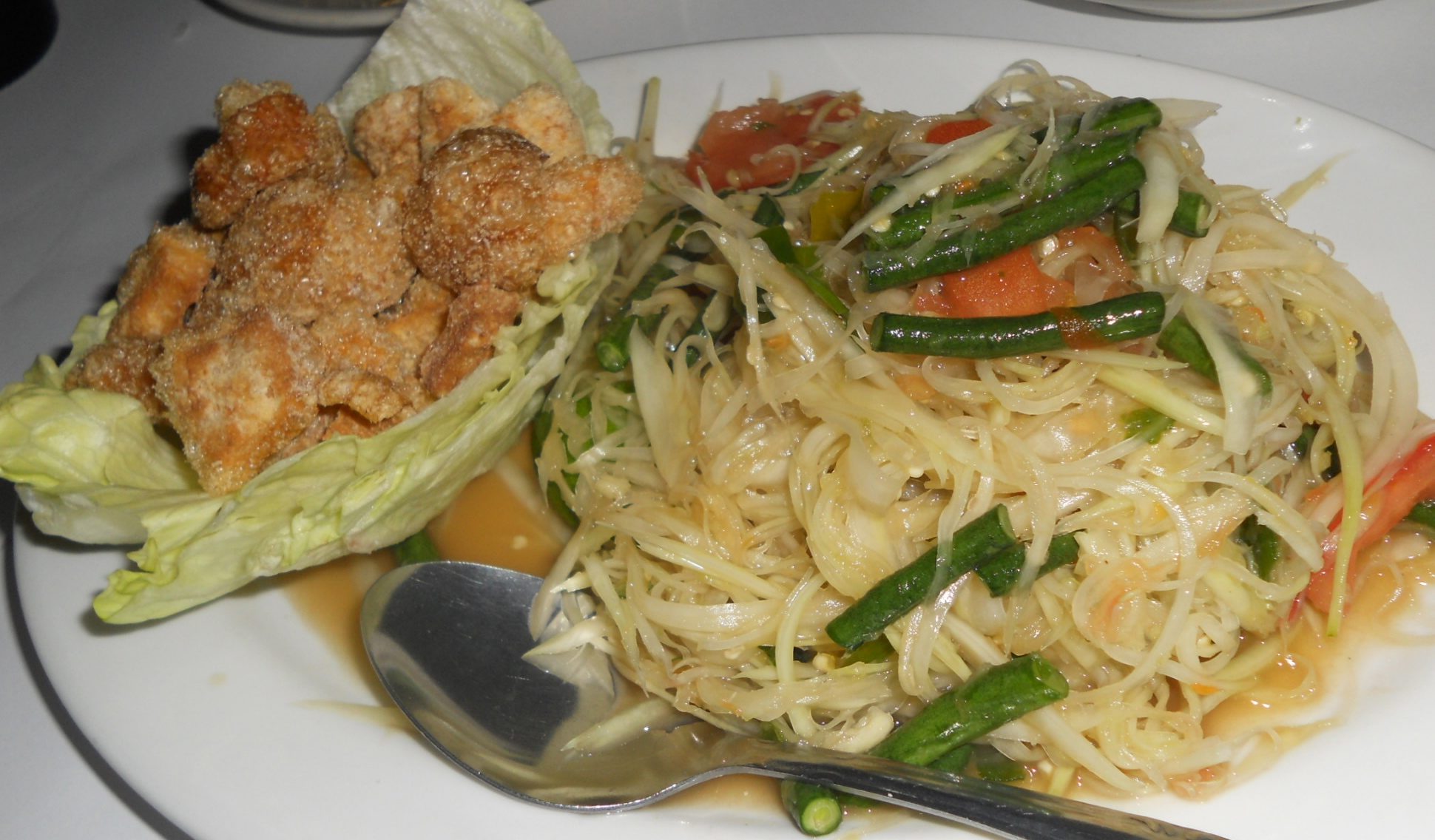
hhhhh vous avez commencé à nous attaquez même sur nos plats oui c est vrai c est pas marocain ca par ce que les marocains le fait beaucoup mieux que ce beurek saturé de huile
You’re hilarious, Principe. No, I didn’t attack Moroccan food or anybody else here. I love Moroccan food. Maybe something got lost in translation?
I also love the meals I’ve eaten at this wonderful Algerian establishment, and I simply wish that restaurateurs and American customers would fully embrace cuisines from lesser-known countries. Moroccan food is everywhere in the U.S., and that’s a wonderful thing. But why can’t U.S. restaurants celebrate Algerian food, too?
ALGERIAN CUISINE IS NOT WELL KNOWN , it is very rich as moroccan cuisine et tunisian cuisine the 3 have a lot of similarities like the berber heritage couscous and baghrir ……and some foods that are andalousian heritage like sweet ans salty food …but the preaparation especially spices that are used in this 3 countries are different and each region of these 3 countries have their own dishes .there are not a lot of algerian restaurant because algerians think that it is traditional and should be made at home but morrocccan cuisine is more famous and unfortunately a lot of dishes and pastries which are typically algerian are presented as moroccan dishes .even people when they eat an arabic dish think that it is moroccan .
[…] must we some place in NYC!” Our muse, The United Nations of Food does a pretty good job starting to describe why this is, but the short version is this – you’ve probably seen “Moroccan” or […]
If someone want rechta dough I m homemade rechta.
Is this restaurant still around? Is Nomad? Have you found any other Algerian restaurants in he Queens/ NYC area?
Sadly, Harissa Cafe closed quite a few years ago now. I’ve been trying to track down Halim, the chef/owner of Harissa Cafe, but haven’t had any luck through his old email address or facebook page. So if anybody out there knows where to find him, please send me a message! I’m in touch with a restaurant that would love to install him as a chef. 🙂
Nomad is still around, though!